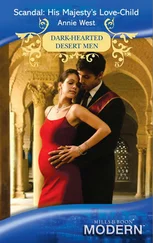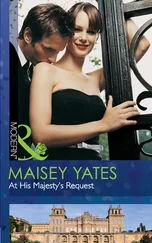1 ...6 7 8 10 11 12 ...18 The tune played by lute and harp trailed into silence. Voices stilled. Everyone turned toward the entrance doors. The commander of Braesford’s men-at-arms rose from a nearby table. He nodded at a half-dozen men and left the hall in their company.
“You are expecting visitors?” Isabel asked in quiet tones as she leaned toward her future husband.
“By no means, but don’t be distressed. It can be nothing of import.”
He suspected a neighboring landowner and his men on local business, mayhap, or else a latecomer to the feast. Still, she knew as well as he did that it could also be a command to join the king’s army, to ride out to control some uprising or defend a border. Only a mounted troop or king’s herald would have triggered the trumpet salute of warning.
They had not long to wait. The clatter of hooves on the stones of the inner court and the jingling of tack came faintly to where they sat. Booted feet sounded upon the tower stairs. Serving men threw open the doors, allowing a cadre of soldiers under the king’s red-dragon banner to march inside. They tramped down the open area between the trestles until they reached the high table. The order to halt rang out and their commanding officer stepped forward, saluting with a mailed arm and gloved fist.
Braesford came to his feet with a frown between his dark brows. “Welcome, William, as always, though I thought you settled at Westminster. What brings you this far north?”
“The order of the king.” The man addressed as William pulled a paper from the pouch at his side and passed it across the width of the high table to Braesford.
Isabel recognized the newcomer as William McConnell, a man she had seen about the court. Turning over his name, studying his features and something of his manner, she felt the stir of presentiment. He was similar in size and feature to Rand, though McConnell’s hair was more badger brown than black, the jut of his nose less bold and his eyes brown rather than gray. Recalling, abruptly, some whispered comment heard more than a year ago, she realized this was Braesford’s remaining half brother, the third of three, he who had once thought to inherit the hall where she sat until it was forfeited after their father was executed.
“What is it?” Braesford asked, accepting the roll of parchment, unfurling it so the great seal of the king appeared, impressed into wax as red as blood.
“An unpleasant errand, in all truth.” McConnell directed his gaze somewhere above the high table, upon his family banners that hung there.
“Aye, and that would be?”
His half brother cleared his throat with a rasp, speaking in a voice that reached into the most distant corners of the room. “Randall of Braesford, you are charged with the crime of murder in the death of the child born these two months past to Mademoiselle Juliette d’Amboise. By command of His Royal Majesty, King Henry VII, you are directed to leave within the hour for London, in company with your affianced wife, Lady Isabel of Graydon. There, you will appear before the King’s Court on the charge lodged against you.”
Murder. The heinous murder of a child. Isabel sat unmoving, so mired in disbelief she could hardly take in the implications of the charge.
Even so, three things were blindingly obvious to her.
There would be no night spent in the bed of the master of Braesford, not if she was to leave with him at once for London.
There might never be a wedding if he was convicted of the murder.
The curse of the Three Graces of Graydon had not failed.
F ury ran like acid through Rand’s veins. It striped his thought processes to such a sharp and raw edge that he was able to order the packing of supplies for his men and his guests, to direct the continued operations for the manse and the coming harvest, all while mentally cursing his king who was also his friend. Or who had once been his friend, in the days of their exile.
What in God’s sweet heaven was Henry about with this charge of murder of an innocent? Mademoiselle Juliette d’Amboise’s newborn babe, a small mite with Juliette’s full-lipped mouth and Henry’s pale blue eyes, had been in rosy health when Rand last saw her. He had stood sentinel on the keep wall as little Madeleine, as Juliette had named her, left Braesford Hall with her mother. Henry himself had sent an armed troop to see his mistress to a place of quiet seclusion, so must know full well the baby had not been harmed.
Henry was a secretive man, and who could blame him? When only four years old, he had been taken from his mother and placed in the custody of a sympathizer of the Duke of York. Being fostered in a family not his own was common for the scion of a noble house, as it was thought to promote independence and allow instruction in the art of war without any weakening favoritism, but this was the house of the enemy. Henry had escaped that imprisonment when his doddering cousin, Henry VI, briefly regained the throne from the Yorkists under Edward IV, but was forced to ride for his life when the aging king was murdered. He, with his uncle, Jasper Tudor, barely reached the coast and took ship for France ahead of Edward’s forces—who would certainly have killed him, as well.
Blown off course, Henry and Jasper landed in Brittany, where their fate hung in the balance as the Duke of Brittany made up his mind whether more political advantage could be gained from keeping them as his nominal guests or turning them over to their enemies. For the next fourteen years, that cat-and-mouse game had played itself out, with Louis XI of France sometimes taking part in it before his death. Henry had been heard to say that he had been either hunted or in captivity for most of his life. Was it any wonder that he had grown as devious as those who surrounded him?
Understanding could not persuade Rand to overlook the unwarranted interference in his nuptials and his life. He railed against it, cursing the timing and implied threat. He suspected Henry had changed his mind about giving him Lady Isabel. It was always possible the king had discovered a more worthy husband for her, one who would bring greater advantage to the crown.
It was damnable. More than that, Rand objected strenuously to being hung so the lady might be free. He meant to guard against convenient accidents that could remove him, as well; he had insisted that his own men-at-arms must join the king’s men, and Graydon’s, on this ride to London.
Now he sat his gray destrier, Shadow, in brooding silence. Flanked on one side by his squire, David, a blond and blue-eyed young valiant, and on the other by his own restless soldiery, he watched Lady Isabel emerge from the tower into the court. She appeared pale but resolute in the flare of torchlight, with the hood of her cloak drawn forward, half concealing her face. She was gloved, Rand saw, but the leather was cut away from the injured finger of her left hand.
His splint still held it in place. It gave him an odd satisfaction to see it.
She had not wanted to be wed, had been coerced in the most brutal fashion to accept the match, forced to ride north to Braesford for the marriage. He might have known. She was the daughter of an earl, after all. Why should she be wed to a bastard knight? It was a disparagement to her high birth under the rights granted to nobles by the Magna Carta. She should have been allowed to refuse, might have done so if not for her stepbrother’s threats.
A nobody, she had named him.
She had it aright; still, Rand seethed as he recalled that pronouncement in her clear, carrying voice. He was more of a personage now than he had been born to expect, had earned land and honors by his own hard effort. He would have more yet. And when it was gained, he would lay it at her feet and demand her apology, her recognition of his worth and her surrender.
Читать дальше












